Public Reactions to Karen Madness: Unpacking Entitlement and Outrage
Category: Social Issues
Understanding the Public Outcry Over Karen Madness
If you’ve ever witnessed or heard about a "Karen" incident—where entitlement and disruptive behavior escalate into public outrage—you’re not alone in seeking clarity on why these moments provoke such a strong societal response. This article is tailored for socially conscious readers who are deeply interested in unpacking the cultural phenomenon of "Karen madness," the public’s reaction to it, and what it reveals about current social justice dynamics. You came here because you want to understand the complexity behind public frustration: it’s not just about individual rude encounters, but about larger issues of fairness, privilege, and social accountability. Unlike simplistic takes that either defend or vilify "Karens" without nuance, this post dives into the anatomy of public reactions, exploring why these behaviors trigger widespread backlash. Whether you’re an activist, a cultural commentator, or simply someone tired of entitlement-driven conflict, this post will equip you with a comprehensive view grounded in cultural analysis, current events, and social critique. Read on to see why "Karen madness" isn’t just a meme but a mirror reflecting real societal tensions you care about.
- Understanding the Public Outcry Over Karen Madness
- The Origin and Definition of the 'Karen' Phenomenon
- Common Traits and Behaviors that Spark Public Outrage
- Social Media as the Amplifier: How Platforms Fuel the Viral Spread and Exaggerated Reactions to "Karen" Encounters
- Real Case Studies: Notable Incidents That Sparked Widespread Public Backlash
- Public Psychology Behind Reactions: Exploring the Social Justice Perspectives and Group Dynamics
- Impact on Businesses and Public Spaces: How "Karen Madness" Affects Service Workers, Policy Changes, and Community Atmosphere
- Intersectionality and Critiques: Examining Race, Gender, and Class in Public Responses to "Karens"
- Karens and the Justice System: When Entitlement Crosses Legal Lines and the Role of Public Opinion in Accountability
- Counter-Reactions and Defenses: Understanding Arguments That Defend or Downplay Karen Behaviors and Public Pushback
- How Society Can Move Forward: Recommendations to Reduce Entitlement Conflicts and Promote Fairness
The Origin and Definition of the 'Karen' Phenomenon
The term "Karen" has evolved dramatically over the past decade, transforming from a simple name into a cultural shorthand that encapsulates a specific type of behavior marked by entitlement, privilege, and often, blatant disregard for others. While the exact origin is difficult to pinpoint, social media platforms like Reddit, Twitter, and TikTok played a pivotal role in popularizing "Karen" as a meme used to call out individuals—typically middle-aged white women—who engage in unjustified demands, aggressive complaining, or weaponizing their perceived social status to get their way at the expense of fairness and respect.
Tracing the Evolution of "Karen"
- Early Usage: The name appeared sporadically in internet slang and jokes but lacked a consistent social meaning.
- Viral Meme Status: Around 2017-2018, "Karen" began to appear widely as a meme linked to egregious displays of entitlement, often accompanied by images or videos of confrontations in public spaces.
- Political and Social Context: The term gained new weight amid social justice movements, being used to highlight how unchecked privilege can perpetuate systemic inequality.
- Mainstream Adoption: Today, "Karen" is firmly embedded in popular culture and news media, symbolizing not just individual rudeness but a broader critique of entitlement culture and the abuse of social power.
What “Karen” Represents in Social Discourse Today
In modern social discourse, "Karen" is more than a derogatory label—it’s a symbol of collective frustration against a pattern of behavior that undermines social cohesion and justice. It calls attention to:
- Entitlement and Privilege: "Karen" behavior underscores how social and racial privilege can manifest through demands for special treatment and disregard for equity.
- Microaggressions and Injustice: Many "Karen moments" expose subtle and overt forms of discrimination, from racial profiling to class-based assumptions.
- Public Accountability: The widespread sharing of "Karen" incidents serves as a form of social regulation, holding individuals accountable when they overstep boundaries and disrupt communal respect.
By understanding the origin and evolving meaning of "Karen," we gain insight into why public reactions to these episodes are not just about isolated rudeness—they reflect deeper societal struggles with fairness, respect, and equality.

Image courtesy of Jep Gambardella
Common Traits and Behaviors that Spark Public Outrage
At the heart of every widely shared "Karen" incident lies a consistent pattern of entitlement, privilege, and disruptive behavior that fuels public indignation. These behaviors aren’t random—they reflect deeper social dynamics where individuals leverage perceived status or identity to bypass norms, demand special treatment, and create conflict in public or professional settings. Understanding these common traits is essential to grasp why "Karen madness" ignites such a vigorous backlash.
Key Characteristics of Karen Behavior
-
Unwarranted Demands and Complaints: A hallmark of Karen incidents is the insistence on getting immediate attention or preferential treatment, often accompanied by aggressive or unreasonable complaints. Whether it’s demanding to "speak to the manager" without cause or pushing for exceptions that disadvantage others, this behavior signals a refusal to accept communal rules or norms.
-
Performative Authority and Policing: Many "Karens" adopt an authoritarian posture, attempting to police others’ actions based on personal biases or prejudices. This might include calling security or law enforcement over trivial matters or claiming enforcement of rules that they selectively interpret to their benefit, frequently targeting marginalized groups.
-
Weaponizing Social and Racial Privilege: Privilege plays a critical role, as Karen behaviors often occur in contexts where race, class, or gender advantage empower individuals to act without immediate repercussions. This includes scenarios such as racial profiling masked as concern or exercising power in service interactions to demean or intimidate staff.
-
Disregard for Empathy and Social Boundaries: Public outbursts labeled as Karen moments typically exhibit a lack of empathy, where individual desire overrides collective respect and kindness. This disregard exacerbates tensions, turning situations that could be remedied with mutual understanding into viral spectacles of conflict.
Why These Behaviors Trigger Public Outcry
The public outrage surrounding Karen incidents is grounded not merely in annoyance at rude behavior, but in a widespread recognition that such actions perpetuate social inequalities and injustice. When people witness entitlement being exercised at the expense of fairness—especially when racial or economic privilege is weaponized—they see a reflection of broader structural problems. The visibility of these behaviors via viral videos and social media amplifies calls for accountability, galvanizing audiences who demand a more equitable social order.
By dissecting these traits—unjustified demands, performative authority, privilege exploitation, and lack of empathy—we better understand why “Karen madness” resonates as a cultural touchstone revealing frustrations with systemic entitlement and disrupted social harmony. This awareness reinforces why public reactions are often intense and sustained, beyond isolated acts of discourtesy.

Image courtesy of Ketut Subiyanto
Social Media as the Amplifier: How Platforms Fuel the Viral Spread and Exaggerated Reactions to "Karen" Encounters
In today’s digital age, social media platforms act as powerful amplifiers that accelerate the visibility and impact of "Karen" incidents, transforming isolated conflicts into viral phenomena that ignite widespread public outrage. Platforms like Twitter, Facebook, Instagram, and especially TikTok provide fertile ground for these encounters to be recorded, shared, and dissected by millions instantly. This rapid dissemination not only exposes the problematic behavior but also exacerbates the intensity of public reactions, often amplifying narratives and emotions beyond the original context.
The Viral Mechanics Behind "Karen" Madness
- Instant Recording and Sharing: Smartphones make it easy for bystanders to capture questionable or aggressive behavior on video. When shared online, these clips draw immediate attention, sparking debates and calls for social accountability.
- Algorithmic Boosting: Social media algorithms prioritize content with high engagement. Since "Karen" incidents evoke strong emotional responses—outrage, disbelief, or schadenfreude—they tend to be promoted widely, reaching audiences far beyond the initial location.
- Echo Chambers and Group Mobilization: Online communities committed to social justice or anti-entitlement often amplify these encounters as emblematic cases, rallying support and criticism that feed into collective outrage or activism.
- Memetic Spread and Cultural Symbols: The "Karen" label becomes shorthand for complex social dynamics, simplifying discussions but sometimes leading to caricatures or exaggerations. Memes, hashtags (#CancelKaren, #KarenMadness), and viral challenges embed the phenomenon deeper into public consciousness.
Why Social Media Intensifies Public Response
The speed and scale of social media sharing fuel a cycle where outrage grows exponentially, often overshadowing nuance and context. This digital magnification serves important functions:
- Enforcing Social Accountability: Viral exposure pressures individuals and institutions to acknowledge and address instances of entitlement and abuse of power.
- Raising Awareness of Systemic Issues: These viral stories spotlight broader problems such as racial bias, socioeconomic disparity, and social injustice.
- Fostering Public Debate: Social media creates a public forum for discussion and reflection on fairness, privilege, and civility.
However, this amplification can also lead to exaggerated reactions, misinterpretations, or harassment, complicating efforts for fair and constructive dialogue. Understanding social media’s dual role—as both a tool for transparency and a catalyst for sensationalism—is key to navigating the ongoing cultural conversation surrounding "Karen madness."
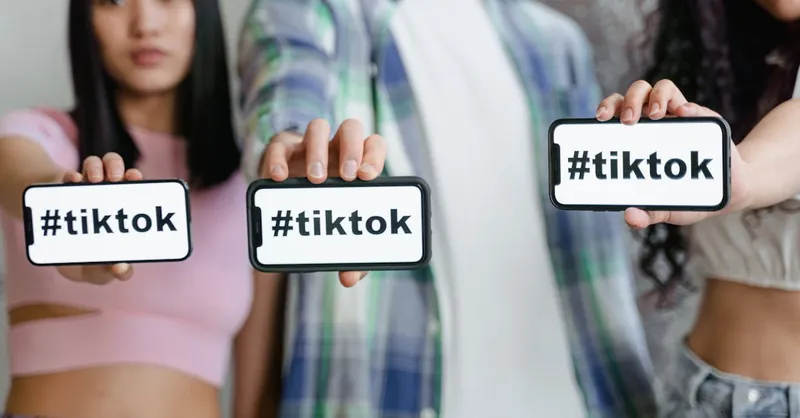
Image courtesy of MART PRODUCTION
Real Case Studies: Notable Incidents That Sparked Widespread Public Backlash
To fully grasp why "Karen madness" ignites such intense public reactions, it’s crucial to analyze real-world examples where entitlement and privilege collided with social expectations—triggering viral attention and sustained public discourse. These case studies reveal patterns of behavior that not only provoke anger but also serve as flashpoints for broader conversations about fairness, systemic bias, and social accountability.
1. The Central Park Birdwatching Incident (2020)
One of the most infamous examples involved a white woman who called the police on a Black birdwatcher simply because he asked her to leash her dog in Central Park. This incident captured global attention for several reasons:
- Racial Profiling Under the Guise of Public Safety: The woman’s weaponization of law enforcement against an innocent individual highlighted how racial privilege can distort everyday encounters into dangerous confrontations.
- Massive Viral Spread: The video, posted widely on social media, sparked international condemnation and calls for systemic reform in policing and racial justice.
- Public Dialogue on Entitlement: This case became a symbol of how a seemingly innocuous complaint can escalate into a public emergency due to ingrained biases and unchecked entitlement.
This incident exposed the harmful consequences of “Karen” behavior, illustrating how personal privilege can destabilize community trust and safety. It further intensified demands for accountability—not only for the individual involved but for institutions that enable such abuses.
2. The Gym "Mask Karen" Confrontation
During the COVID-19 pandemic, numerous videos surfaced of individuals refusing to comply with mask mandates, often escalating to confrontations with staff or other patrons. One notable case featured a woman aggressively demanding mask exemption privileges while verbally abusing gym employees. Key takeaways included:
- Public Health vs. Personal Entitlement: The clash underscored the tension between individual rights and collective responsibility in times of crisis, with "Karen" behavior pushing boundaries at the expense of public well-being.
- Social Media Backlash: Sharing of the incident galvanized online communities advocating for compliance and respect, amplifying frustration with those who undermine health guidelines.
- Visible Class and Privilege Dynamics: The confrontation revealed how some individuals leveraged social status to flout rules, exposing deeper societal divides.
This example highlights that "Karen madness" frequently transcends petty disputes, often reflecting broader societal fractures around authority, obedience, and mutual respect in public spaces.
3. Retail and Customer Service Showdowns
Countless viral videos involve customers—typically the prototypical "Karen"—demanding to "speak to the manager," berating staff over trivial issues, or insisting on undeserved exceptions. Noteworthy elements include:
- Abuse of Power Dynamics: These incidents spotlight how entitlement manifests through aggressive behavior aimed at frontline workers, often disproportionately affecting marginalized employees.
- Consumer Culture Critique: They provoke discussions on the unbalanced power consumers assume versus the dignity and rights of service workers.
- Widespread Identification and Condemnation: Audiences tend to rally behind employees, catalyzing social support movements and calls for respectful customer interactions.
Such case studies serve as everyday examples of "Karen madness," encapsulating systemic issues of economic disenfranchisement, workplace respect, and the impact of entitlement culture on social harmony.
By dissecting these and other high-profile "Karen" incidents, it becomes evident that public backlash stems not just from isolated displays of rudeness but from their connection to enduring social inequalities, privilege exploitation, and challenges to collective norms. These real case studies provide critical insight into why society reacts so vehemently: they reveal a cultural tipping point where entitlement is no longer tolerable in a world increasingly aware of justice and equity.
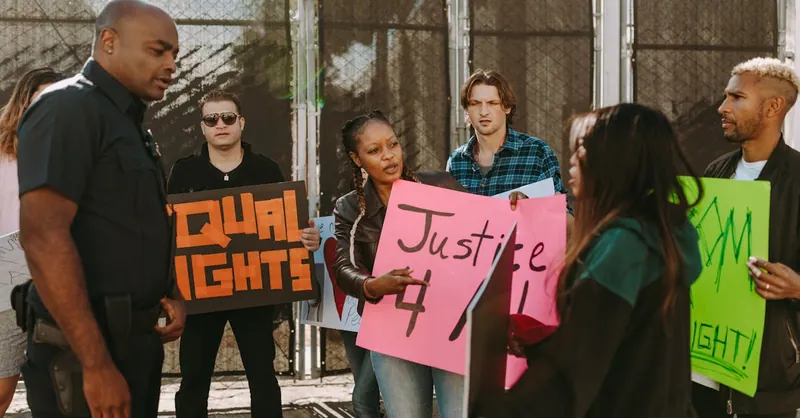
Image courtesy of RDNE Stock project
Public Psychology Behind Reactions: Exploring the Social Justice Perspectives and Group Dynamics
The intense public reactions to "Karen madness" are deeply rooted in human psychology, social justice awareness, and group dynamics that shape how communities perceive entitlement and privilege. At the core, these reactions stem from a collective recognition that "Karen behavior" is not just socially disruptive but emblematic of larger systemic injustices—especially those related to race, class, and power imbalance. People respond strongly because such incidents activate moral emotions like indignation, empathy for marginalized victims, and a desire for social fairness.
Social Justice Perspectives Fueling the Backlash
- Recognition of Structural Inequality: Many "Karen" incidents vividly expose how racial and socioeconomic privilege give some individuals disproportionate power over others. This triggers a sense of injustice among observers who are increasingly attuned to social equity.
- Empathy for Targeted Groups: When victims of Karen behavior belong to historically marginalized communities, the public often rallies in solidarity, seeing these confrontations as microcosms of broader systemic discrimination.
- Demand for Accountability: Social justice advocates view viral "Karen" moments as catalysts that expose unchecked privilege and demand both individual and institutional responsibility for perpetuating inequity.
Group Dynamics Amplifying Public Response
- In-group vs. Out-group Mentality: Viewing "Karens" as representative of entitled groups exacerbates social polarization. Those who identify with marginalized or less privileged groups perceive these incidents as violations of fairness, strengthening collective outrage.
- Social Norm Enforcement: Public reactions serve as informal social sanctions, a way groups police behavior to uphold communal standards of respect, equality, and civility.
- Collective Identity and Mobilization: Social media-fueled outrage often galvanizes like-minded communities into action—whether through protest, dialogue, or raising awareness—thus embedding "Karen madness" within ongoing struggles for justice and equity.
Understanding these psychological and social mechanisms clarifies why "Karen" encounters provoke more than fleeting annoyance. They strike a nerve at the intersection of personal behavior and systemic injustice, mobilizing public sentiment grounded in a shared commitment to fairness and societal harmony. Recognizing this complexity is essential for anyone seeking to analyze or engage with the cultural phenomenon beyond surface-level interpretations of entitlement-driven conflict.
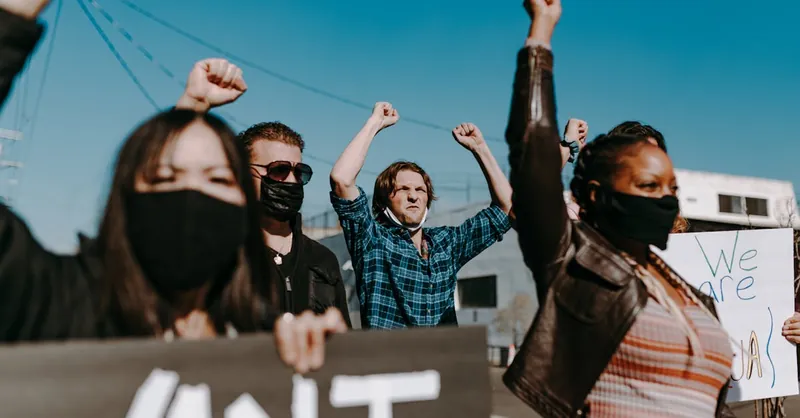
Image courtesy of RDNE Stock project
Impact on Businesses and Public Spaces: How "Karen Madness" Affects Service Workers, Policy Changes, and Community Atmosphere
The ripple effects of "Karen madness" extend far beyond viral videos—they deeply impact businesses, frontline service workers, and the overall atmosphere in public spaces. Service employees often bear the brunt of entitlement-driven confrontations, experiencing increased stress, emotional labor, and sometimes even threats to their safety. These aggressive interactions undermine workplace morale and contribute to high turnover rates, costing businesses valuable time and resources.
Moreover, repeated "Karen" incidents have prompted many businesses and public institutions to reexamine and revise policies to better protect employees and patrons alike. These measures include stricter enforcement of behavioral standards, clearer communication of rules, and implementing zero-tolerance policies against harassment or discrimination. While such policy changes aim to curb disruptive entitlement, they also signal a growing recognition of the need to balance customer service with respect and fairness.
In public spaces, the presence of "Karen madness" fosters a tense and often hostile atmosphere, deterring community cohesion and safe social interaction. When entitlement overrides empathy and shared respect, spaces meant for communal enjoyment devolve into sites of conflict and distrust. This not only affects individuals directly involved but also discourages others from engaging fully in public life, fracturing the social fabric. Understanding these tangible consequences reveals why combating entitlement-driven disruptions is essential—not just for social justice but for maintaining healthy, inclusive community environments.

Image courtesy of Kindel Media
Intersectionality and Critiques: Examining Race, Gender, and Class in Public Responses to "Karens"
Understanding public reactions to "Karen madness" requires a critical look at the intersectionality of race, gender, and class—factors that profoundly shape how these incidents are perceived, portrayed, and contested in society. While the stereotype of a "Karen" is often associated with middle-class white women exhibiting entitlement and privilege, the public discourse surrounding these figures reveals layered critiques about how social identities intersect to influence both the behavior and backlash.
The Role of Race in "Karen" Incidents and Reactions
Race is a central axis in many "Karen" encounters, especially because these incidents frequently involve racial profiling, microaggressions, and systemic bias. When a white woman calls the police or enforces rules selectively against people of color, it not only highlights individual entitlement but also echoes a long history of racialized power dynamics. Public outrage thus acts as a response to both explicit discrimination and the broader system of racial inequity that such acts symbolize. This racial dimension intensifies the backlash because these encounters often trigger collective memories of oppression and ongoing struggles for racial justice.
Gender and the Feminization of Entitlement
While "Karen" specifically targets women—most often cisgender white women—public responses also reflect critiques of gendered entitlement and the policing of female behavior. The stereotype points to how societal expectations around white womanhood can enable certain privileges, like invoking victimhood or authority for personal gain. However, intersectional critiques also challenge oversimplified sexist readings by emphasizing that entitlement is a product of power structures, not merely individual personality traits or gendered stereotypes. This highlights how gender intersects with race and class to create distinct experiences of privilege and critique.
Class Privilege and Economic Power
Class plays an equally important role in fueling both "Karen behavior" and its public repudiation. Many viral "Karen" incidents involve middle or upper-middle-class individuals leveraging their economic status to demand special treatment or impose their will in service and public settings. Audiences often interpret this as an abuse of economic privilege that allows for social mobility and empowerment at the expense of marginalized or working-class people. This dynamic feeds into broader frustrations about classism and systemic inequality, making "Karen madness" a flashpoint for debates about fairness and respect across economic divides.
Why Intersectionality Matters in Understanding Public Backlash
The intersectional nature of "Karen madness" reveals that public responses are not merely reactions to rude or entitled behavior but are instead complex expressions of frustration against intertwined systems of oppression and privilege. Recognizing how race, gender, and class converge helps:
- Unpack layered meanings behind viral Karen incidents, moving beyond one-dimensional judgments.
- Illuminate why some encounters provoke more intense outrage, especially when marginalized groups are targeted.
- Highlight the social accountability demands placed on not just individuals but also institutions that sustain unequal power relations.
By incorporating intersectional analysis, discussions about "Karen madness" become richer and more nuanced—capturing the full scope of social justice concerns ignited by these viral moments of entitlement.
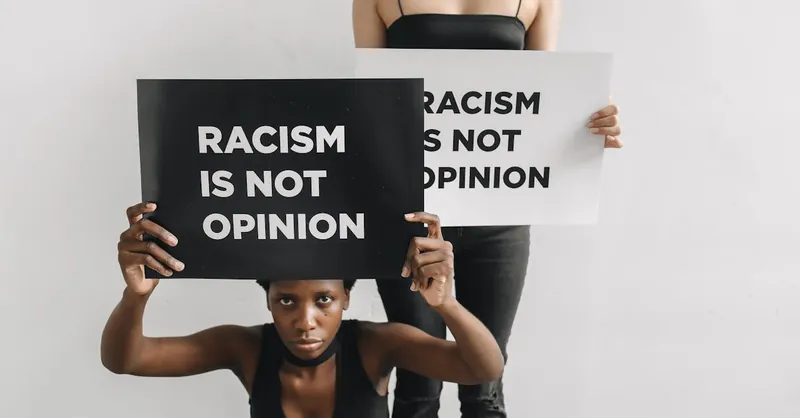
Image courtesy of Polina Tankilevitch
Karens and the Justice System: When Entitlement Crosses Legal Lines and the Role of Public Opinion in Accountability
The intersection of entitlement-fueled “Karen” behavior with the justice system often transforms what might begin as minor disputes into serious legal consequences, raising critical questions about accountability, bias, and the limits of privilege. When “Karens” escalate their demands to police involvement or legal threats, they cross a threshold where entitlement is weaponized against individuals or communities, sometimes resulting in wrongful arrests, harassment, or public endangerment. These legal entanglements reveal how social power imbalances can permeate formal institutions, often amplifying injustice under the guise of law enforcement or rule enforcement.
Public opinion plays a vital role in mediating these incidents. The viral dissemination of “Karen” encounters mobilizes widespread scrutiny, demanding that justice systems recognize when they have been misused to enforce privilege rather than protect fairness. Social media platforms and public protests act as informal watchdogs, pressuring police departments, courts, and policymakers to correct abuses—such as racial profiling or unnecessary escalation—that arise from entitlement-driven calls for intervention.
Key Legal and Social Implications of Karen Behavior in the Justice Context
- Weaponization of Law Enforcement: Many “Karen” incidents involve unnecessary calls to police based on subjective fears or biases, disproportionately impacting marginalized groups and perpetuating systemic discrimination.
- Legal Accountability for Abusive Behavior: Courts and law enforcement agencies increasingly confront the challenge of balancing rights protection with preventing frivolous or malicious complaints tied to entitlement.
- Public Demand for Reform: Viral “Karen” cases intensify calls to reform policing protocols, mandating bias training, de-escalation techniques, and greater transparency to avoid enabling entitlement-driven injustices.
- Social Media as a Check on Legal Power: Viral exposure exerts crucial pressure for accountability, ensuring that misuse of legal systems doesn’t go unchecked and fostering dialogue about equitable justice.
In essence, the clash between Karen entitlement and the justice system underscores the urgent need to dismantle social privileges that convert personal grievances into institutional power plays, while public opinion remains a powerful force ensuring those responsible are held to account. This dynamic highlights how cultural outrage over “Karen madness” is not merely performative but a substantive call for fairness, legal integrity, and social equity.
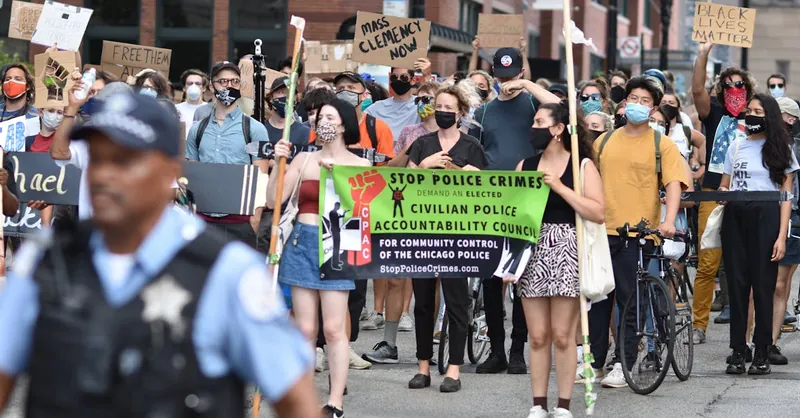
Image courtesy of Charles Criscuolo
Counter-Reactions and Defenses: Understanding Arguments That Defend or Downplay Karen Behaviors and Public Pushback
While public outrage over "Karen madness" is widespread, it’s important to recognize that there are counter-reactions and defenses which argue that Karen behaviors are often misunderstood, exaggerated, or unfairly targeted. Some voices in these debates suggest that not all so-called "Karen" incidents stem from malicious entitlement but may instead arise from genuine concerns, misunderstandings, or ordinary frustration. These perspectives urge caution against overgeneralization, warning that labeling someone a "Karen" can sometimes serve as an unjust shorthand that dismisses legitimate complaints or unfairly vilifies individuals—particularly women.
Common Defenses and Downplaying Arguments
- Misinterpretation of Behavior: Some argue that "Karen" accusations oversimplify complex social interactions, ignoring context such as stress, mental health struggles, or different cultural backgrounds that influence how people communicate.
- Overuse of the Label: Critics of the "Karen" meme warn about its weaponization as a tool for online shaming, which can contribute to unfair harassment or cyberbullying toward anyone perceived as assertive or critical.
- Legitimate Customer or Public Concerns: In many service-related encounters, some defenders point out that being a vocal or firm customer does not inherently imply entitlement. Instead, it can reflect rightful advocacy for quality service or safety regulations.
- Gender and Age Bias Claims: There is also a viewpoint highlighting that the "Karen" label disproportionately targets middle-aged women, which may reinforce ageism or sexism by stigmatizing assertiveness as negative behavior linked specifically to this demographic.
Public Pushback and Dialogue Nuances
These defenses fuel important conversations about the nuance needed in social critique. A balanced approach advocates distinguishing between problematic entitlement and legitimate expressions of dissatisfaction or boundary-setting. This pushback invites society to reflect on how labels like "Karen" can sometimes contribute to divisiveness or silence productive discussions around service, accountability, and communication styles.
However, public pushback does not erase the systemic issues underlying many Karen incidents—especially when behaviors escalate to harassment, discrimination, or abuse of power. Navigating this tension requires critical awareness to hold individuals accountable without dismissing valid concerns or perpetuating harmful stereotypes.
By engaging with these counter-arguments, the cultural dialogue surrounding "Karen madness" becomes more sophisticated, emphasizing both social justice imperatives and fairness towards individuals in complex social interactions. This balance is essential for fostering a healthy public discourse that challenges entitlement while preserving empathy and equity.
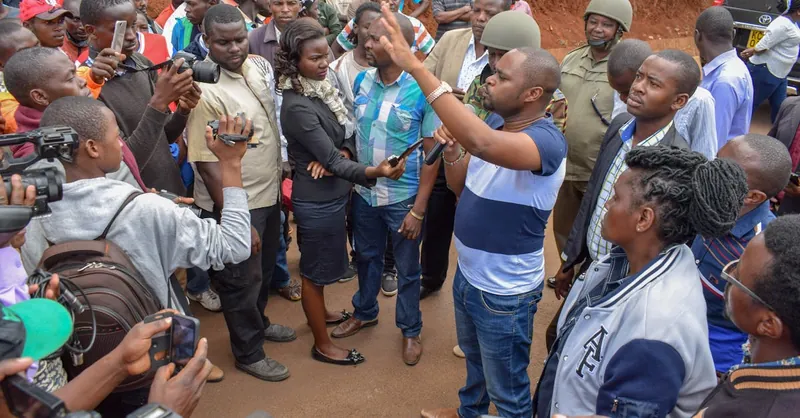
Image courtesy of Denis Ngai
How Society Can Move Forward: Recommendations to Reduce Entitlement Conflicts and Promote Fairness
Addressing the widespread phenomenon of "Karen madness" requires thoughtful, practical steps that help reduce entitlement-driven conflicts without resorting to exaggeration or polarization. Society benefits when individuals, communities, and institutions adopt strategies focused on fostering empathy, accountability, and equitable treatment, ultimately promoting a culture where fairness is prioritized over unchecked privilege.
Key Recommendations to Mitigate Entitlement Behavior and Enhance Social Fairness
-
Promote Empathy and Emotional Intelligence Education:
Encouraging emotional literacy from early education stages can reduce entitlement by helping people recognize how their actions affect others. Empathy-building programs in schools and workplaces cultivate understanding and patience, defusing potential conflicts before they escalate. -
Encourage Responsible Public Engagement and Conflict Resolution:
Teaching de-escalation techniques and effective communication skills empowers both customers and service workers to manage disagreements constructively. Workshops and public campaigns can normalize respectful dialogue, helping communities handle frustration without fueling viral outrage. -
Implement Clear and Fair Institutional Policies:
Businesses and public agencies should establish transparent codes of conduct that balance customer service with employee rights. Enforcement of zero-tolerance policies against harassment and discrimination protects workers while ensuring that privileges are not abused to the detriment of fairness. -
Leverage Social Media Mindfully:
While social media plays a critical role in accountability, users should be encouraged to approach viral "Karen" content critically—acknowledging context and avoiding snap judgments or doxxing. Platforms can improve by enforcing respectful discourse guidelines and providing tools that discourage mob-like reactions. -
Advance Intersectional Awareness and Inclusivity:
Public education initiatives highlighting how race, class, and gender dynamics influence entitlement help dismantle stereotypes and reduce biased behavior. Intersectional training in workplaces and communities promotes a deeper understanding of social privilege and calls for active allyship.
By integrating these recommendations, society can move beyond reactive outrage toward proactive cultural change that diminishes entitlement conflicts and builds stronger, more equitable social bonds. Addressing the root causes of "Karen madness" with balanced, evidence-based approaches ensures progress without sacrificing nuance or fairness in public dialogue.

Image courtesy of cottonbro studio
